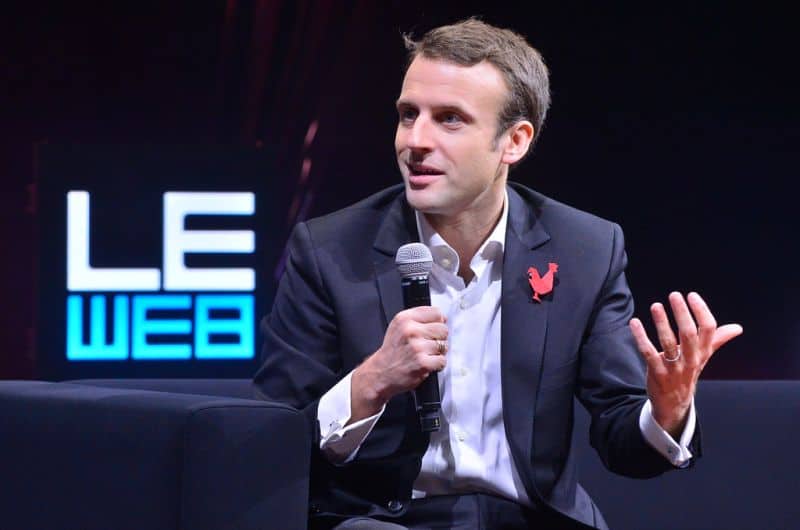Camberley: The leaders of Britain and France met against a military backdrop to pledge closer cooperation on defense, security and borders after Britain leaves the European Union.
But President Emmanuel Macron also delivered a firm message: the U. K. cannot keep coveted access to the European Union for its financial sector after Brexit unless it continues to play by the bloc’s rules once it leaves.
“The choice is on the British side, not on my side,” Macron said at a joint news conference with British Prime Minister Theresa May yesterday.
“If you want access to the single market — including the financial services — be my guest,” he said. “But it means that you need to contribute to the budget and acknowledge European jurisdiction.”
May said Britain would be leaving the single market, but wanted a free-trade deal with the bloc covering both goods and services. She said London would remain a major financial center after Brexit.
The visit, Macron’s first to Britain since he won the French presidency in May 2017, was aimed at strengthening security and intelligence ties between nations that are both neighbors and historic rivals, and building goodwill as Britain negotiates its exit from the EU.
The venue — the Sandhurst military academy southwest of London — was selected as a signal that the relationship between western Europe’s two biggest military powers won’t be weakened once the UK leaves the EU in March 2019.
May treated the French leader to a pub lunch of crab and duck breast, followed by a serving of British military pomp.
Macron was greeted at the Sandhurst officer-training academy by a band and troops from the Coldstream Guards in gray coats and bearskin hats.
Amid a sudden hailstorm, Macron and May inspected the honor guard before taking a salute from soldiers on horseback.
Senior ministers from the two countries attended the one-day meeting, and signed agreements on everything from space exploration to tackling online extremism.
In a significant gesture, May offered millions to ease French annoyance over a 2003 deal that placed British border controls in the northern French port of Calais.
The town has become a magnet for migrants hoping to reach Britain, and the accord puts the burden of blocking their entry to the U. K. on France.
Alongside a new treaty aimed at better management of their joint border, Britain agreed to pay USD 62 million for fences, security cameras and other measures in Calais and nearby English Channel ports. France also wants Britain to take in more migrants from Calais, especially unaccompanied children.
May pointedly declined to give a number of migrants that Britain would take when asked by journalists at a joint press conference. Instead she stressed the need to clamp down on people smugglers and take other measures to stop migrants from getting to Calais.
Macron said the treaty would mean “smarter and more efficient management of the border” and a more efficient, humane processing system for migrants.
The UK also said it will send three Royal Air Force Chinook helicopters and dozens of personnel to join France’s military mission against Islamic militants in Africa’s Sahel region. France has led efforts to fight al-Qaida and IS-linked jihadi groups in the vast region south of the Sahara desert.
The leaders of the five main UK and French spy agencies also met for the first time, as the two countries seek to increase intelligence-sharing. France and Britain have both faced a string of violent attacks by extremists inspired or directed by the Islamic State group.
May said the UK-French summit “will underline that we remain committed to defending our people and upholding our values as liberal democracies in the face of any threat, whether at home or abroad.”
In a boost to Macron, Britain is throwing its backing behind the European Intervention Initiative, a multinational European military force that the French president has proposed. He also wants a common European defense budget and security doctrine.
In return, France will send troops to join a UK-led NATO battle group in Estonia in 2019, aimed at countering an increasingly assertive Russia.
Macron also came with the news that France will loan Britain the Bayeux Tapestry, an 11th-century panorama depicting the Norman conquest of England.
Macron said that despite Brexit, “we are facing common challenges and sharing the same destiny.”
“We are somehow making a new tapestry together,” he said.
PTI/AP

